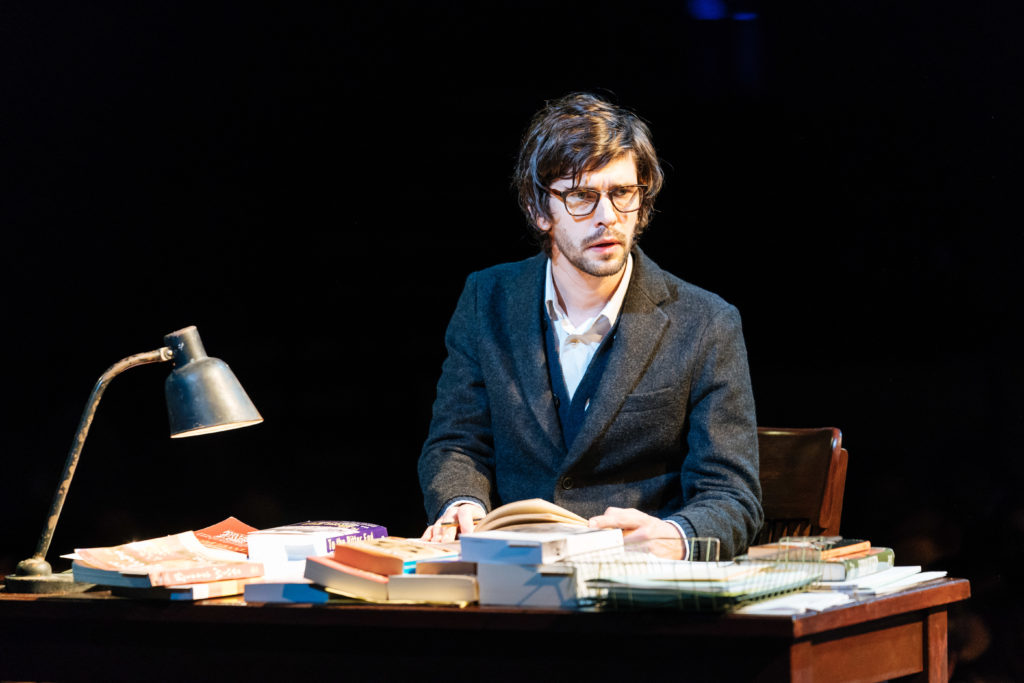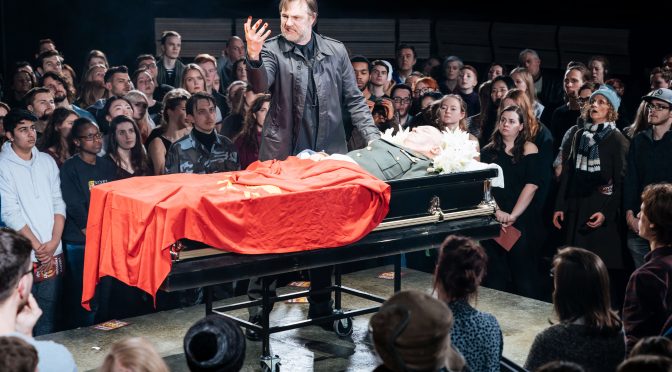Showing off his new venue’s versatility, director Nicholas Hytner has transformed London’s newest theatre for only its second show. Presenting Shakespeare’s Roman tragedy as a promenade performance, with the pit peopled by theatregoers standing in for the populace, reveals a cavernous space that seems rather empty at first. But as Bunny Christie’s set of rising and falling cubes gets into action we see Hytner’s skill at staging. This crowd control is superbly done, and probably fun if you are in among the action (I paid to sit). But it’s almost too interesting to watch the hard-working ushers moving the crowd around.
In a play that discusses manipulating the masses so openly, there’s a kind of appropriateness to being distracted by the mechanics of the production. There are many instances when it’s clear the show is trying hard to be a spectacle with impressive touches that give it an expensive feel. It’s loud – right from the start when a band opens the show – and Bruno Poet’s lighting design is superb. Scenes of battle include a barricade that appears with stunning speed to divide the space. There’s even a Jeep for a few seconds.

The performances have to fight against a lot here – with mixed results and plenty of shouting. Those who join the mob seem best placed, including Rosie Ede and the show’s lead vocalist Abraham Popoola. But David Calder’s Caesar seems lost; presenting him as a populist politician may make the production feel topical but it stunts his performance, making the role a box ticked rather than a figure to engage with. David Morrissey’s Marc Antony holds the crowd, he is convincing and a suitable heir to his crowd-pleasing mentor. Ben Whishaw delivers his lines with finesse and his performance is in keeping with a theme of sincere activism, but his Brutus is too meek. Cast as an academic who plays with his spectacles, it’s tricky to see his nobility behind his obscurantism. There are also strong performances from two women cast in traditionally male roles: Michelle Fairley and Adjoa Andoh make an impassioned Cassius and a ruthless Casca, respectively.
It is nuance that is lost in Hytner’s production. The action is clear, often exciting, but rather too black and white. And this is a humourless Julius Caesar. Of course, the play isn’t a comedy but there’s usually a cynicism that delivers a dark wit. These characters are all politicians, after all, manipulating one another as well as the mob, but the tone is one of intellectual conviction. Arguably, it’s in keeping with the times to persist in such an earnest tone. What inspires Hynter is a feeling of youthful sincerity – but this doesn’t make the play particularly interesting or entertaining.
Until 15 April 2018
Photos by Manuel Harlan

